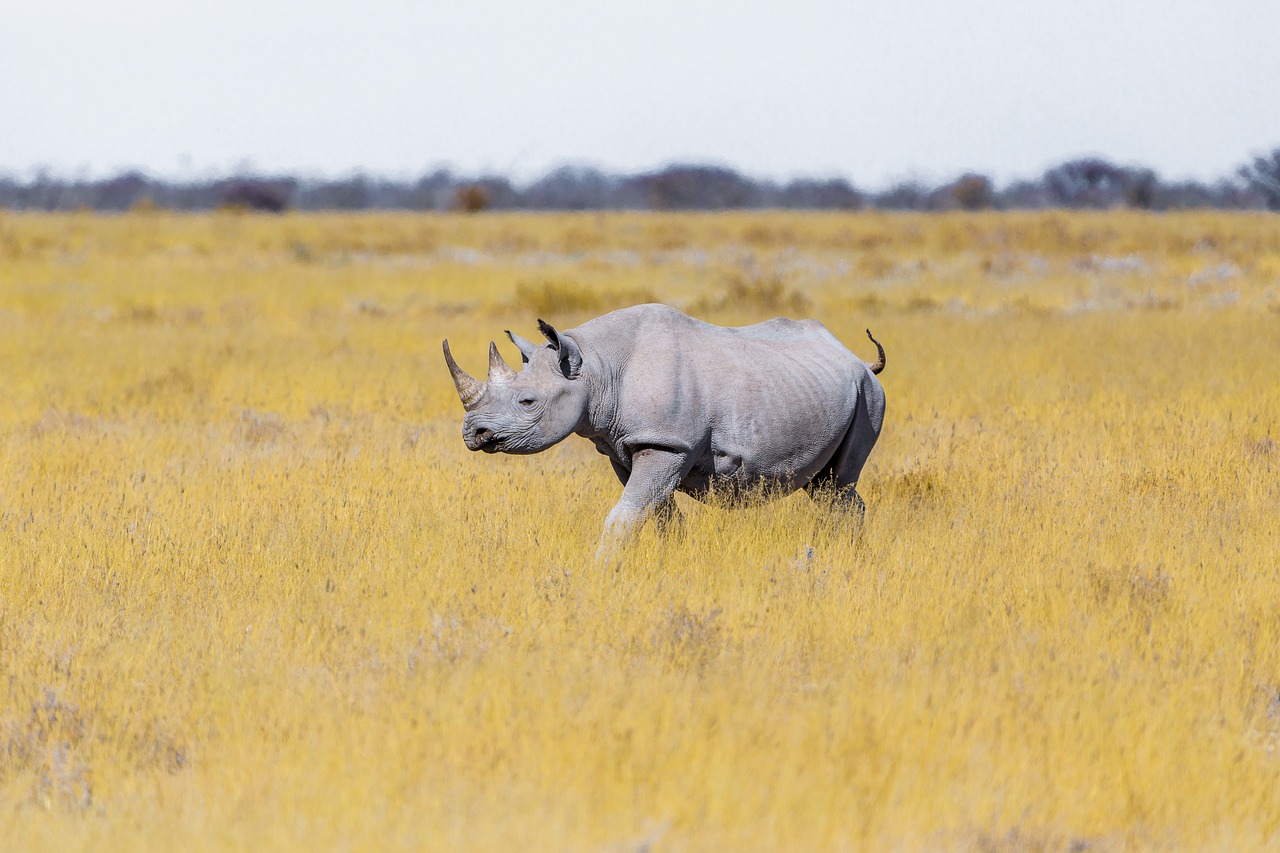The Magnificent Rhinoceros

The rhinoceros, often simply called the rhino, is one of the most iconic and prehistoric-looking animals in Botswana's diverse wildlife. As part of the famous "Big Five", rhinos are a sought-after sight for many safari-goers visiting the country.
Quick Facts about Rhinoceros in Botswana
- Two species are found in Botswana: the white rhinoceros and the black rhinoceros
- White rhinos are actually grey in color, not white
- Black rhinos have a hooked upper lip, while white rhinos have a square lip
- Rhinos can weigh up to 2,300 kg (5,100 lbs) for white rhinos and 1,400 kg (3,100 lbs) for black rhinos
- They can run at speeds of up to 55 km/h (34 mph)
Rhino Conservation in Botswana
Botswana has been at the forefront of rhino conservation efforts in Africa. After local extinction in the 1970s due to poaching, rhinos have been reintroduced to the country through careful conservation programs.
The Khama Rhino Sanctuary, established in 1992, has played a crucial role in these efforts. Located near Serowe, this sanctuary provides a safe haven for both white and black rhinos, allowing them to breed and increase their populations.
Despite these efforts, rhinos still face significant threats, primarily from poaching for their horns. The Botswana government has implemented strict anti-poaching measures, including deploying military units to protect these magnificent creatures.
Where to See Rhinos in Botswana
While rhinos are still relatively rare in Botswana, there are a few places where you might be lucky enough to spot them:
- Khama Rhino Sanctuary
- Moremi Game Reserve
- Chobe National Park
- Makgadikgadi Pans National Park
Remember, when viewing rhinos or any wildlife, always maintain a safe distance and follow the instructions of your guide. Responsible tourism plays a crucial role in the continued conservation of these magnificent animals.
Interesting Rhino Behaviors
Rhinos are fascinating creatures with some unique behaviors:
- They communicate through a wide range of vocalizations, including grunts, snorts, and even high-pitched squeals
- Rhinos have poor eyesight but excellent hearing and sense of smell
- They love wallowing in mud, which helps cool their body and protect their skin from sunburn and insects
- Despite their size, rhinos are herbivores, feeding mainly on grasses, leaves, and twigs
Experiencing these incredible animals in their natural habitat is truly a once-in-a-lifetime opportunity. By visiting Botswana and supporting responsible wildlife tourism, you're contributing to the ongoing efforts to protect and preserve rhinos for future generations.